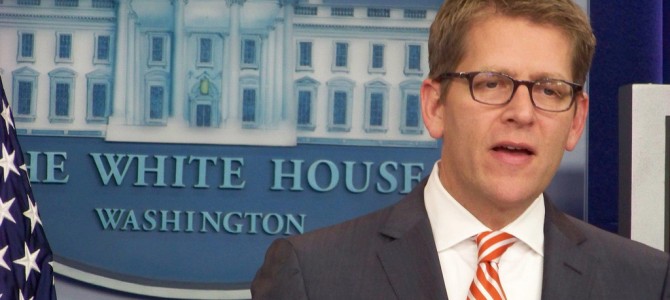Professors at Indiana University recently released their decennial report on the “pulse of U.S. journalism.” After interviewing over 1,000 journalists, the authors found that the news business has reimagined its mission over the past two decades. My colleague Mollie Hemingway has already explored the deep and growing ideological bias found in the survey. The report also finds that today’s journalists are, on average, more educated, older, paid less and predictably miserable.
But there are other curious developments, as well. When asked whether “controversial” reporting practices “may be justified on occasion” if the situation involved an important story, increasing numbers of journalists said no. The percentage of journalists, for instance, who approve of occasionally using “confidential business or government documents without authorization,” had dropped from 81.8 percent in 1992 to 57.7 percent in 2013, according to the poll. The percentage of those who justify the occasional use of “personal documents without permission” decreased from 47.6 percent in 1992 to 24.9 percent in 2013.
Even support for the sporadic “badgering or harassing of unwilling informants” fell from 48.8 percent to 37.7 percent.
So in other words, around 48 63 percent of reporters believe reporters should avoid engaging in acts of journalism.
The Atlantic categorizes this trend as a “more moral” press. I doubt it. If you harbor ethical dilemmas about bending rules that were constructed by people engaged in wrongdoing, or if you feel the need to ask permission to bring important and useful information to the public, you’re in the wrong business. If you’re too polite to harass someone for an answer or confront them with uncomfortable questions, you’d undoubtedly be more satisfied working as a flack. And that’s exactly what many journalists end up doing.
Which is one reason I suspect journalists are less inclined to engage in “controversial” measures when gathering news. It’s got little to do with an improving ethical disposition in newsrooms and everything to do with careerism. For many, the reporting job is merely a step toward a big payday, a cushy gig working in PR or politics. I don’t begrudge them this, but oftentimes these long-term plans interfere with journalistic integrity.
While reading this poll, I was reminded of a time I worked with a reporter covering a big city council who was simply unwilling to ask any hard-hitting questions – much less “badger” or betray a trust of elected officials by publishing documents that were off limits. This was, of course, a big disservice to readers. Rather than bringing healthy adversarial instincts to the relationship, it was more expedient and symbiotic, with one entity feeding the other just enough information to survive. This journalist moved to a public affairs shop, naturally, where his former subjects soon became clients. Actually, I watched environmental reporters go work for environmental advocacy groups and political reporters head to state and city Democratic administrations at alarming rates. Does anyone believe that these hires were made because the reporter was a first-rate watchdog? Actually, does anyone believe that Jay Carney or Richard Stengel or Jill Zuckman — or any of these people — were so effective covering the Democratic Party that the Obama Administration had no choice but to hire them?
Here’s how the Indiana University report puts it:
Overall, this trend toward a more “gentle” journalism in the United States might be a reflection of the growing commercial pressures the U.S. media have faced during the past two decades. Investigative reporting is a costly endeavor and might scare away audiences that do not appreciate aggressive journalism.
I suspect the only audience “aggressive journalism” scares away are other journalists and politicians. It was curious that recently The Daily Beast’s Josh Rogin, accused of secretly recording Secretary of State John Kerry’s remarks at a Trilateral Commission event in Washington, was the center of any controversy. Rather than being celebrated for doing his job, Rogin was cast as a “repeat offender” and the way he obtained the tape became a story. An offender? There was, obviously, a bit less hand wringing when outlets obtained tapes of Mitt Romney speaking derogatorily about the 47 percent and one wonders if 48 percent of journalists would disagree with the New York Times when it gave us The Pentagon Papers, or, for that matter, dozens of other stories over the years.
Obviously, there’s a still a ton of fantastic journalism out there — in some ways, I think this is a golden age — but the idea that reporters inclined to assertively snoop or pursue a story are less moral or more offensive to audiences is perplexing. This is why, in some ways, the rise of partisan and ideological driven journalism can be useful – especially if you’re a conservative. You’re free to go after the other side without reservations about your own career or their feelings. Yes, this generates a lot more noise, but it also helps undo a bit of this tip-toeing that goes on in journalism.
Follow David Harsanyi on Twitter.







